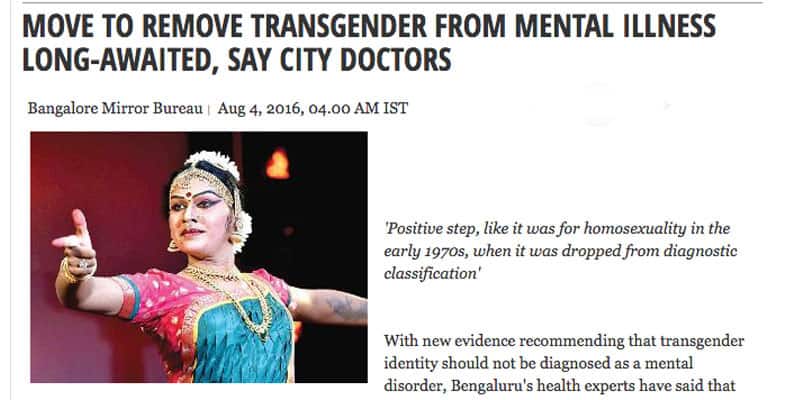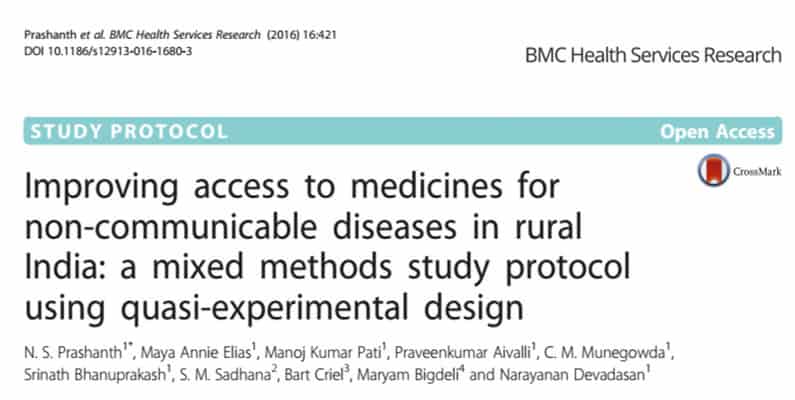
IPH Comments on ICMR

Indian Council of Medical Research (ICMR) is revising the Ethical Guidelines for Health and Biomedical Research.
IPH submitted detailed comments on the revised draft of 2016.


Indian Council of Medical Research (ICMR) is revising the Ethical Guidelines for Health and Biomedical Research.
IPH submitted detailed comments on the revised draft of 2016.


The Niti Aayog invited comments on the draft National Commission Bill, 2016 to replace the Indian Medical Council Act, 1956.
IPH sent its comments on the draft bill to regulate medical education to the Niti Aayog.


In an official release last year, WHO said that ART should be initiated in everyone living with HIV, no matter what their CD4 cell count (CD4+ T cell is a type of white blood cell vital to fighting infection, and its levels are key indicators of the condition of the patient’s immune system).
However, according to the Ministry of Health and Family Welfare, though about 21.17 lakh people (India HIV estimation 2015 report of WHO) are estimated to be living with HIV in India, ART is started only in those patients whose CD4 count is less than 350.
The total number of patients with CD4 count of less than 350 in the country is estimated to be 13,45,678. Of this, the number of people on ART is 9.40 lakh,
making a coverage rate of 70 per cent.
“It is possible that when this policy was formulated, we did not have enough treatment centres. ART may also have side-effects, so that could be another factor why India decided to start ART only for those patients whose CD4 count was less than 350. However, I believe we should comply with WHO guidelines. The reason being that a person diagnosed with HIV, may not have a CD4 count below 350 as he or she has been leading a healthy lifestyle, and that person may not come back for follow-ups at the same hospital. We will also not be able to track the incidence of HIV in the country,” said Aneesha Ahluwalia, a health expert from the city-based Institute of Public Health.


Aneesha Ahluwalia, staff at Institute of Public Health, said that putting transgender under mental disorders classification is not the right thing to do scientifically and has some serious implications.
“According to a 2011 census, India has 4.9 lakh transgenders and it is estimated that this number is likely to be six to seven times more. If we look at it, transgenderism is a biological phenomenon affecting the reproductive health of the individual. As rightly pointed out in the report, transgenders face stigmatisation, which can lead to stress, depression and other mental disorders. If we consider transgenderism as a mental illness, it has serious consequences. It is a well-known fact that transgenders fall under the high-risk groups for diseases like HIV. Since mental disorders fall under the purview of psychiatrists, other health-related conditions may remain undiagnosed and may cause further deterioration in their health,”.


Center for Tropical Medicine, Faculty of Medicine, Universitas Gadjah Mada (CTM-UGM), Yogyakarta, Indonesia has been designated as a Regional Training Center (RTC) for Health Research by TDR for the South East Asia Region since 2010, with a mandate to improve research capacity skills of researchers in the region.
The 2nd Batch of Regional Course on IR that will be held on September 27-30, 2016 in Indonesia.
This course will introduce participants to the concept of IR, tools and materials relevant to IR and facilitate the development of IR proposal.
The course aims to develop IR capacity in both individuals and institutions, particularly in low- and middle-income countries, where the greatest needs for expanding IR capacity persist. Throughout the capacity-building process there are feedback loops for monitoring, tool kit adaptation and improvements, as well as suggested approaches to ensure integration of knowledge translation and uptake of results.
MODULES
The training will be delivered through lectures, plenary discussion, group discussion and problem analysis which focus on a series of modules:
Online Phase for workshop hosted by Institute of Public Health (IPH)
In Collaboration with Universitas Gadjah Mada (CTM-UGM), Yogyakarta, Indonesia, Institute of Public Health (IPH), Bangalore, India, is hosting the e-Learning Phase of “Implementation Research Workshop”.


Improving access to medicines for non-communicable diseases in rural India: a mixed methods study protocol using quasi-experimental design:- Paper from ATM Study Published on BMC Health Services Research
Background: India has the distinction of financing its healthcare mainly through out-of-pocket expenses by individual families contributing to catastrophic health expenditure and impoverishment. Nearly 70 % of the expenditure is on medicines purchased at private pharmacies. Patients with chronic ailments are especially affected, as they often need lifelong medicines. Over the past years in India, there have been several efforts to improve drug availability at government primary health centres. In this study, we aim to understand health system factors that affect utilisation and access to generic medicines for people with non-communicable diseases.
Methods: This study aims to understand if (and how) a package of interventions targeting primary health centres and community participation platforms affect utilisation and access to generic medicines for people with non-communicable diseases in the current district context in India. This study will employ a quasi-experimental design and a qualitative theory-driven approach. PHCs will be randomly assigned to one of three arms of the intervention. In one arm, PHCs will receive inputs to optimise service delivery for non-communicable diseases, while the second arm will receive an additional package of interventions to strengthen community participation platforms for improving non-communicable disease care. The third arm will be the control. We will conduct household and facility surveys, before and after the intervention and will estimate the effect of the intervention by difference-in-difference analysis. Sample size for measuring effects was calculated based on obtaining at least 30 households for each primary health centre spread across three distance-based clusters. Primary outcomes include availability and utilisation of medicines at primary health centres and out-of-pocket expenditure for medicines by non-communicable disease households. Focus group discussions with patients and in-depth interviews with health workers will also be conducted. Qualitative and process documentation data will be used to explain how the intervention could have worked.
To know more:- Click here